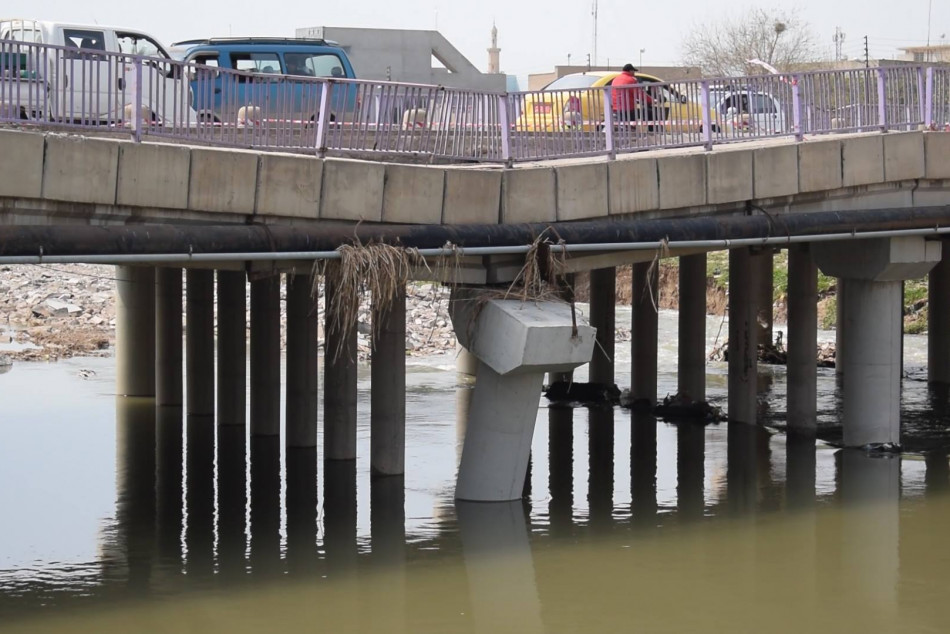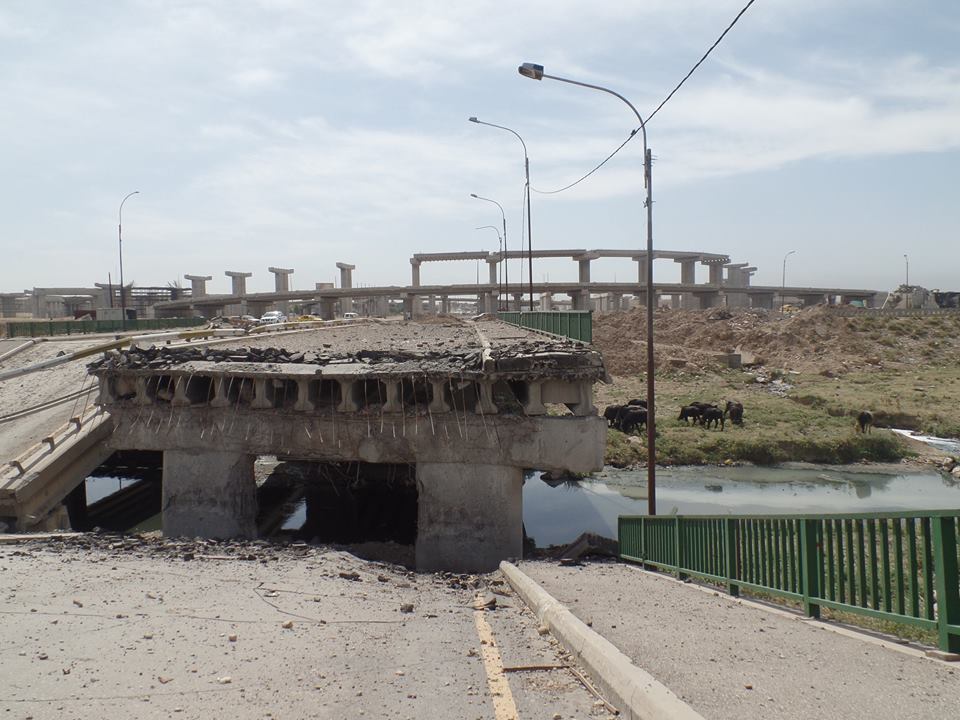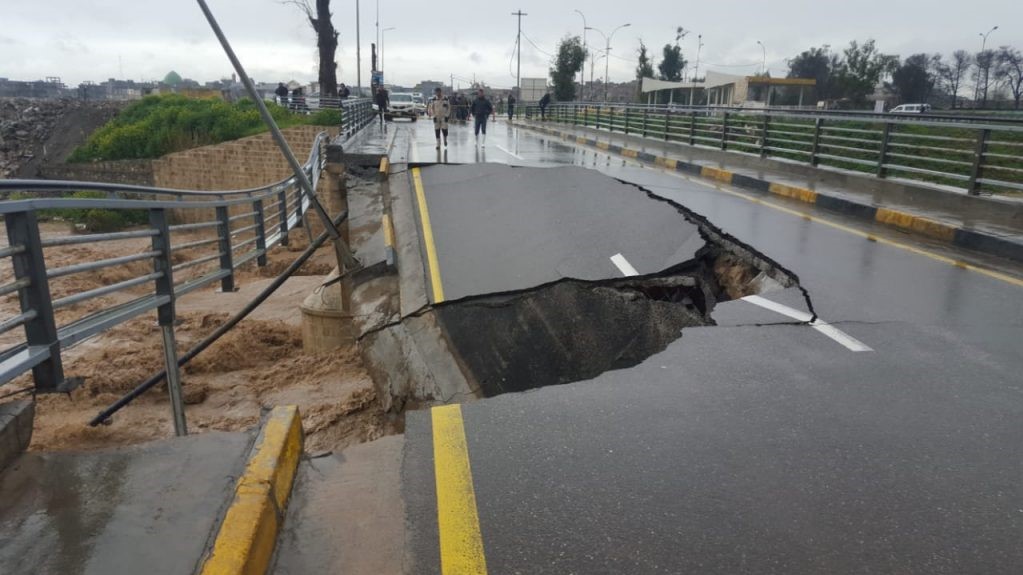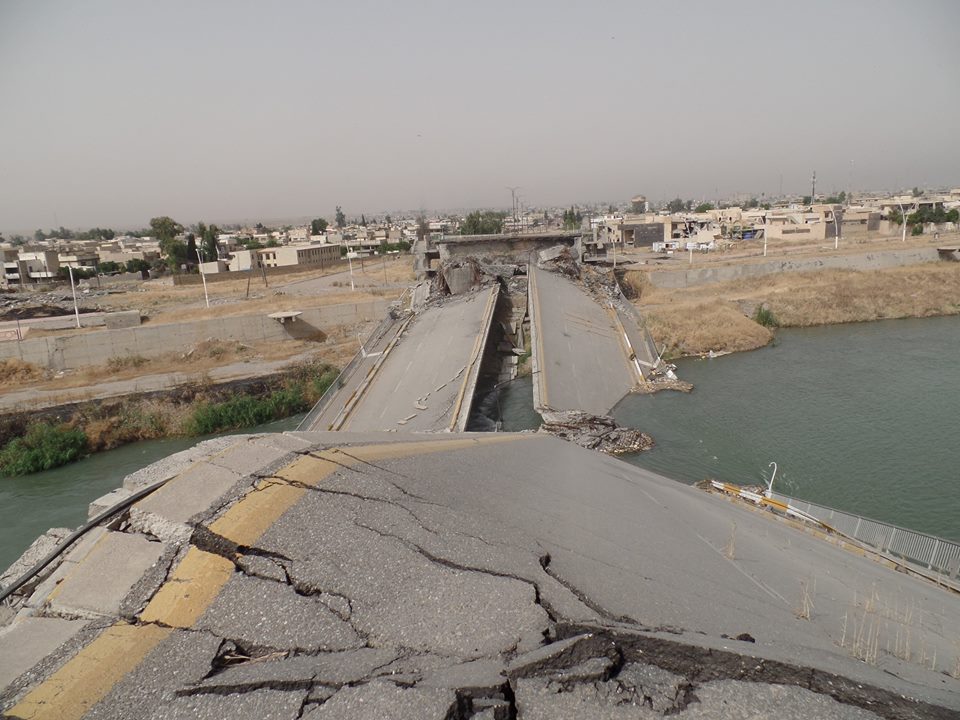The slow-paced progress in the reconstruction of the five main bridges connecting the western and eastern coasts of Mosul has been hindering the return of normal life to the war-ravaged city.
All five bridges were partially or completely destroyed during the war against the Islamic State group which swept across Mosul in mid-2014.
The bridges, built across the Tigris River, were named numerically according to when they were built.
The First Bridge also called the Old Bridge was built in 1932, and was opened in 1934. The 305-meter-long bridge connects the Nasr and Maydan areas on both sides of the city. It is the only now fully functional bridge in the city; however the traffic load has made it extremely difficult and time-consuming for commuters to travel across this bridge. Also it cannot accommodate big trucks.
The local administration considers bridge rehabilitation priority
Ninewa governor Mansour al-Mar’id has stressed that the complete rebuilding of bridges is a priority on his administration’s agenda to help return the city to business as usual.
Speaking to KirkukNow, al-Mar’id said, “We are overseeing the work of the directorate of roads and bridges on a daily basis to ensure that the damaged bridges would be brought back into full service as soon as possible."
He indicated that "the first phase of the reconstruction of Mosul’s Second Bridge will start within a month."

The governor explained that it is “not possible to tackle the traffic problems in Mosul and other parts of the Ninewa province without bringing all the bridges back into service,” adding that “a budget has been allocated to fund the rehabilitation of all bridges inside Mosul as well as the Gwer and Gayara bridges.”
The local administration announced on August, 25, 2019 the reopening of Al Faysaliya Bridge, which is an extension of the Old Bridge.
The crisis is affecting residents’ livelihood
Saleh Abdul-Aziz, a resident of Tammuz neighborhood in the western side of Mosul, complained that the bridges have not been repaired despite that three years have passed since the city was retaken from IS. “This is really affecting our daily life," he said.
"The third bridge is one of the most vital bridges in Mosul; restoring this bridge to full service would restore life to Mosul’s Medical City, and tackle traffic congestion on both the Old Bridge and the Fourth Bridge."
Saleh Aziz explained that it takes “at lealst up to 45 minutes to cross from one side to the other”, which makes people reluctant to venture across the river unless it is absolutely necessary.

Mosul- Al-Muthanna Bridge was heavily damaged during the war against ISIS
Ayad Abdul-Ghani, who owns a hand tool shop in Al Sa'a area on the western side of Mosul says the misery of extended commutes has led to fewer customers arriving from the eastern side of the city.
“This has greatly affected our already weak sales. It doesn’t make sense; out of five main bridges we have none that is fully functional."
Restoration of main bridges underway
In February 2019, Iraq’s minister of Construction and Housing Bangin Rekani announced that the rehabilitation of all the bridges in Mosul will be completed by the end of the year and early next year.
Meanwhile, the head of Mosul Municipality Radzwan Al-Shahwani stressed that their efforts are now focused on the rehabilitation of damaged bridges and the rebuilding of war affected areas as well as the provision of basic services.
"All the bridges and roads will be brought back into service in the near future, hopefully remarkable changes will be seen in the few coming months," he told KirkukNow.
In addition to Mosul’s five bridges, smaller bridges span the Khosar River, which runs through eastern Mosul.

Mosul’s al-Faysaliya Bridge partially collapsed by heavy rainfall, winter of 2018 Photo: KirkukNow
Sa’ad Ghanim, a truck driver says “large trucks are struggling to get through Mosul because the bridges are crippled and most of the roads are unfit for traffic.”
“Dozens of cargo trucks stuck every day on both sides of the city,” he said.
The city Mosul is home to a population of 1.5 million. The city sustained heavy damage after IS militants wept across Ninewa. Thousands of buildings, mostly on the western side of the city are still in ruins.





